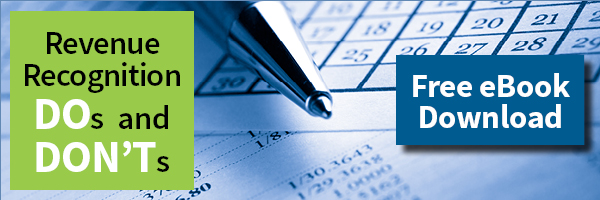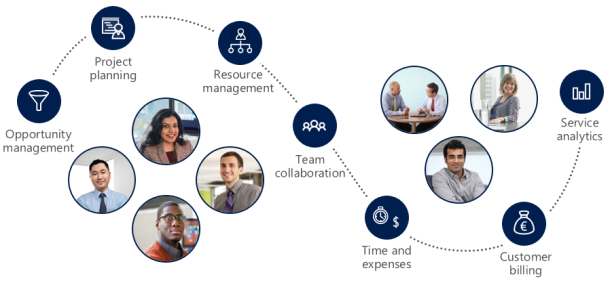The effective date of the new revenue recognition guidance is, at long last, here. CFO Magazine’s recent article, How Risky Are New Revenue Recognition Rules?, says “at some point after that, we’ll begin to see whether the new standard’s principles-based methodology is working as intended.”
The article points out that there are some judgment calls that must be made when it comes to the new revenue recognition rules.
Elements of judgment reside in each step of the new standard’s five-step process, according to CFO, including:
Step 1: Identify the contract(s) with customers. The collectability of consideration in a transaction is a concept that requires judgment in both the current and new guidance. Under the new guidance, collectability will be addressed in the determination of whether a contract exists, rather than whether revenue can be recognized. While the concept of collectability is not new, the judgments used to assess it will now be necessary at the outset of the revenue recognition process.
Step 2: Identify the performance obligations within the contract(s). Identification of performance obligations will be less restrictive under the new guidance and, therefore, contracts may have fewer performance obligations to be accounted for separately. The determination of these performance obligations will also require increased application of judgment.
Step 3: Determine the transaction price. The transaction price under the contract(s) involves a number of judgments, including consideration of variable and non-cash factors. Under the new guidance, entities will determine variable consideration by estimating either the “expected” value or the most likely amount in a range of possible amounts. As variable consideration will be based on an estimate, the timing of revenue recognition may be accelerated upon implementation of the new standard as compared to the more formulaic recognition of multiple elements over time, as currently required.
Step 4: Allocate the transaction price to the performance obligations in the contract. To allocate an appropriate amount of consideration to each performance obligation, an entity will now determine the stand-alone price at the outset for the goods or services. As stand-alone selling prices can be calculated or estimated in numerous ways that may require significant judgment, revenue recognition may be accelerated under the new guidance, particularly when compared to the current allocation methods.
Step 5: Recognize revenue when (or as) a performance obligation is satisfied. Under the current guidance, the percentage-of-completion method is generally used when recognizing revenue for contracts. Under the new rules, revenue is recognized when, or as, control of the asset is transferred to the customer. The determination of when control is transferred is often a matter of judgment, and will require consideration of when obligations are satisfied.
How will you make judgment calls when it comes to these new rules?
U.S. filers are expected to adopt the new accounting standards their first reporting period after December 15, 2017. For most companies, financial statements released in 2018 will be the first in compliance with ASC 606. To ease the transition, the Boards allow filers to use practical expedients in their application of the new accounting standards and choose between two adoption methods (full- and modified-retrospective).
To learn more about the new standards, check out our ebook: Revenue Recognition Do’s and Don’ts.
Best regards,
Robbie Morrison
Chief Solution Strategist, SBS Group
About Robbie
Robbie Morrison has spent nearly 20 years helping customers build and deploy elegant technology and business solutions. From start-ups to enterprise-class organizations worldwide, his knowledge of the Microsoft Dynamics ecosystem andproducts helps SBS Group customers maximize ROI on technology investments.
Today, Robbie serves SBS Group customers in his role as Chief Solution Strategist where he provides thought leadership and manages the development of B2B solutions. Robbie received his MBA from the University of Georgia, Terry College of Business.
https://www.linkedin.com/in/robbiemorrison


 ive positions with leading ISVs and consulting firms where he led teams in the deployment of Microsoft ERP and CRM. In addition to his technology background, Eric spent the early part of his career in financial management. He is a CPA with a BS in Accounting from the University of Connecticut and an MBA from Boston University with a concentration in Finance.
ive positions with leading ISVs and consulting firms where he led teams in the deployment of Microsoft ERP and CRM. In addition to his technology background, Eric spent the early part of his career in financial management. He is a CPA with a BS in Accounting from the University of Connecticut and an MBA from Boston University with a concentration in Finance.